Henry Kissinger tried to end the Cold War. Why did those who came after him in Washington seek to restart the conflict?
The story of the now 100-year-old German-born thinker who had a profound affect on the foreign policy of his adopted country
A spy, a playboy, the holder of a doctorate, a diplomat, one of the most prominent political figures of the 20th century, and the man who defined American foreign policy during the Cold War. On May 27, 2023, Heinz (or Henry) Alfred Kissinger, a former National Security Adviser and Secretary of State, turns 100 years old. Possibly the best-known US diplomat of his lifetime, he is the man to whom America owes its policy of ‘detente,’ the rebuilding of ties with China, the concept of nuclear deterrence, and the end of the Vietnam War.
RT takes a look at how a Jewish boy from Germany won over American presidents and set US policy for the coming decades, and why critics describe him as an unprincipled follower of Niccolo Machiavelli.
A young master
On October 27, 1969, a squadron of 18 B-52s carrying thermonuclear bombs took off from California. The planes refueled over Canada and were supposed to demonstrate that the US could strike Moscow and other targets in the European part of the USSR. The plan had been developed by Richard Nixon and Kissinger, and the orders were given on October 10. The American leadership believed it could scare the Russians into limiting their support for North Vietnam in an unpopular war that Washington was losing. For three days, the American bombers tested Soviet radar systems before being called home on October 30. The details of Operation Giant Lance became declassified only 35 years later.
Kissinger first entered the world of big-time politics at Harvard, where he got his PhD in 1954. He would go on to teach at the university and make a name for himself as an expert on foreign relations.
At Harvard, the German born dynamo studied under some very anti-Soviet mentors, including William Elliott, a stalwart Cold Warrior and a former adviser to Franklin Roosevelt. Elliott loved Kissinger’s senior undergraduate thesis titled “The Meaning of History,” seeing in it a reflection of his own ideas.
They launched Harvard’s Summer International Seminar, an annual conference at which participants discussed and formulated global political initiatives and strategies aligned with moral leadership and democratic principles. Kissinger claimed the US needed to do more in terms of spreading its ideology.
The new scheme – created to bring together young leaders and amplify American values – caught the attention not only of powerful elites but also the CIA, which bankrolled its expenses for a decade. Back in those years, the Psychological Strategy Board, which was responsible for developing propaganda to weaken the international credibility of communism, hired Kissinger, and, in 1955, he became a consultant to the Operations Coordinating Board of the National Security Council, as well as a study director in nuclear weapons and foreign policy at the Council on Foreign Relations.
He rose to prominence in 1957 after releasing his first book, ‘Nuclear Weapons and Foreign Policy’, which became a bestseller. Even though it reflected the opinions of many military researchers at the time, it made leading politicians and military officials take notice. Kissinger exposed deficiencies in American atomic diplomacy and argued that the US nuclear strategy could not deter the USSR since it only guaranteed an extreme response in the form of mutual destruction in a nuclear apocalypse.
Adversaries of the US could rest assured that nuclear weapons would never be used under such circumstances, which, according to Kissinger, would encourage bolder Soviet expansionism. Therefore, he came up with the idea of using low-yield nuclear weapons capable of delivering effective strikes on relatively small areas, thus offsetting the significant advantage in numbers that the militaries of members of the Warsaw Pact commanded in the European theater.
Here, Kissinger followed in the footsteps of such politicians as President John F Kennedy, who believed that the armed forces of the US should be more flexible in responding to international threats. That logic led to the emergence of the “flexible response” defense strategy in the US in the 1960s. Instead of massive retaliation, it called for the more measured use of force.
Kissinger thought of himself as a follower of realism in international relations. His approach prioritized practical engagement with other powerful actors based not on political doctrines or ethics but on the historical context and states’ own national interests. This strategy is different to the more traditional American concept of exceptionalism since it ignores the moral or ideological aspects of international political partnerships, as long as they serve pragmatic needs.
He believed idealism and high-mindedness in politics were a road to policy paralysis. As he put it to his friend, the historian Stephen Graubard, in 1956, “the insistence on pure morality is in itself the most immoral of postures.”
After making a name for himself in academia, he began his career as a political consultant. In spite of his political and ideological proximity to Republicans, he was also invited to assist high-ranking members of the Democratic Party. He started out as a trusty lieutenant of Nelson Rockefeller, the Republican governor of New York, while simultaneously working for the administrations of President’s Dwight Eisenhower, Kennedy, and Lyndon Johnson.
First among equals
Henry Kissinger became directly involved in strategic policymaking in 1969 after the election of Richard Nixon, the 37th US president, who appointed him as National Security Adviser. Kissinger held that office for six years and, from September 1973, he added the role of Secretary of State to his responsibilities in what is still the only case in the history of the United States of one person holding these two offices at the same time. That was the time when he got to showcase all of his diplomatic knowhow and gained notoriety for his hunger for power and love affairs.
When the realpolitik fan was appointed, he secured the president’s support to centralize the CIA. More layers were added to the National Security Council, a number of committees reporting to him were established, and more staff were hired. The body, which was tied to the president, was also authorized to do more and began to squeeze out the State Department on the foreign policy track, since Nixon didn’t trust the agency. Pavel Sharikov, PhD in political science and director of the Applied Research Center at the Russian Academy of Sciences Institute for US and Canadian Studies, told RT that Kissinger’s breakthrough approach was based on implementing research and analytics in the work of the council.
Kissinger headed up most committees and subcommittees, which made him a very powerful player. He had connections in the Pentagon, Joint Chiefs of Staff, and the CIA. He was in charge of diplomacy and had pull with the US military. He needed all those powers because he was tasked with the delicate mission of managing the US pullout from Vietnam.
By the time Richard Nixon took office, America had been fighting in Vietnam for four years, supporting the south in the war against the communist regime of the north. When Nixon accepted the Republican nomination in 1968, he promised “an honorable end to the war.”
“We shall not stop there – we need a policy to prevent more Vietnams,” he proclaimed. Later, he wrote that he had tried to end it as quickly as possible, and with dignity.
But he couldn’t do it fast – the president’s team couldn’t agree on an exit strategy. A total of 58,281 American soldiers and officers were killed in Vietnam, and 21,189 of them died while Nixon was in office. Kissinger, who started as a consultant in the settlement talks back when Johnson was president and was convinced that it was impossible to win the war, proposed escalation, maybe even a nuclear threat, as a way of raising the stakes and forcing the North Vietnamese to engage in talks, convincing the opponents that America was not going to concede (the so-called madman theory).
On September 10, 1969, ahead of mass anti-war marches across the US, Henry Kissinger sent a memo to the president, listing the dangers of a potential withdrawal. The more troops you pull out, the more voters will demand. Besides, it is harder to fight with fewer soldiers, and the forces will be weakened by every withdrawal. Such an approach could also cause a domino effect, giving the Soviets encouragement in their military operations.
The US insisted that North Vietnam recognize the South Vietnam government and come to a settlement agreement that would keep the country divided in two. The message was sent to Moscow as well: Kissinger and Nixon thought that pressure from the Soviet Union could bring North Vietnam, which was winning, to the negotiating table.
In March 1969, the US began to secretly bomb neutral Cambodia, which was a Viet Cong stronghold – soldiers from the National Liberation Front of South Vietnam were active there. Almost 100,000 civilians were killed, and the campaign also benefitted Pol Pot and his Khmer Rouge, by devastating the agricultural sector. During the same time, the US initiated several secret operations that were supposed to convince the USSR that Washington was preparing for nuclear war. The number of spying missions around the Soviet Union significantly increased, strategic bombers were placed on standby, ready for deployment, and nuclear delivery vehicles were mobilized.
Kissinger utilized diplomatic channels and established contacts with Anatoly Dobrynin, the Soviet ambassador to Washington, overshadowing William Rogers who served as the Secretary of State at the time. They had a direct line, without any switchboards. They spoke one-on-one, without interpreters or aides, almost every day.
Using his connections with Dobrynin, Kissinger arranged a meeting in Paris with Le Duc Thọ, a member of the Vietnam Communist Party’s political bureau. The first round of talks wasn’t successful, and the US continued to pressure North Vietnam through bombings, trying to find a solution. “I refuse to believe that a little fourth-rate power like North Vietnam does not have a breaking point,” Kissinger insisted. Along with other American officials, he was responsible for the carpet bombings of North Vietnam and its allies – Cambodia and Laos. He admitted that his decisions resulted in over 50,000 civilian deaths in Cambodia. Intercept reporter Nick Truse argues that the number is closer to 150,000.
The de-escalation policy was more effective. The USSR didn’t buy the American bluff. The attempt to make concessions in the nuclear sector and economy in exchange for the Soviets restraining communist revolutions in third-world countries failed. Anatoly Dobrynin told Kissinger in a private conversation that the Soviet Union wanted to improve relations with the US despite the Vietnam War. The talks between the two diplomats led to the establishment of a secret channel between the great powers.
Instead of nuclear threats, another tactic was chosen against the USSR – detente through the signing in 1972 of the interim SALT Agreement and the ABM Treaty. Kissinger also started to restore relations with the Communist leadership of the People’s Republic of China.
At the same time, as evidenced in Anatoly Dobrynin’s book ‘In Confidence’, the Soviet leadership was more apprehensive of China that the USA. They could negotiate with Americans and trust them to stick to the agreements signed between the two countries, whereas China – even back then, in the 1970s – was already considered the USSR’s main and most implacable enemy. Moreover, the Chinese leadership even sent a secret message to the US government, in which they condemned the nuclear agreement between Washington and Moscow and warned the Americans “not to trust the Soviet leadership.”
The logic behind Kissinger’s actions – he was de facto in command of the detente policies – was to provide advantages for the US by improving relations with both the USSR and China and undermining ties between these two countries. The steps he undertook resulted in a strategic triangle, in which the US had the edge on the two communist regimes, making them forget about the common ideology that was supposed to unite them. And a slow withdrawal of troops provided the time needed for the US to change the global political landscape, while pursuing a policy of detente in its relations with the Soviets and China while minimizing potential damage from its defeat.
After witnessing the improvement in US relations with the USSR and China, the leadership of North Vietnam felt more inclined to come to the negotiating table. On January 27, 1973, Kissinger and Le Duc Tho finally signed the Paris Peace Accords. The Americans, however, failed to get any concessions from North Vietnam. They agreed to pull out their troops and recognized two governments in the south.
On the next day after the accords were signed, Kissinger said to John Ehrlichman, assistant to the president for domestic affairs, “I think that if they’re lucky they can hold out for a year and a half.” He was off by just a month and a half – South Vietnam fell to the communist army in 1975. “A war is not lost until you consider it lost. Until it looks like a sure defeat, you can call it a victory” – by following this adage, Henry Kissinger turned it into dogma.
Ironically, the war that Kissinger lost ended with personal recognition – in 1973, he was awarded the Nobel Peace Prize, together with Le Duc Tho, for negotiating the ceasefire in Vietnam. Moreover, Kissinger grew so popular in the US because of the detente and the withdrawal from Vietnam that he stayed on as secretary of state even after the resignation of Nixon. He continued in the job under Nixon’s successor Gerald Ford, remaining in charge of American foreign policy until 1977.
The twilight of the diplomacy patriarch’s career
Despite the unquestionable contribution of the patriarch of American diplomacy to the country’s foreign policy, now that so many years have passed, more and more people are questioning his record. Some people consider Kissinger the most efficient state secretary of the past 50 years, while others have demanded an investigation into his actions and even his arrest. While many continue to praise him as a brilliant politician and outstanding negotiator, others tend to view him as unscrupulous and autocratic, even a war criminal.
Thus, journalist Christopher Hitchens in his book ‘The Trial of Henry Kissinger’ showed the politician in an extremely poor light, accusing him of personally commanding the first round of Cambodia bombings without a resolution from the US Congress, in addition to devising and carrying out a plan of kidnapping and assassinating Commander-in-Chief of the Chilean Army Rene Schneider as part of a campaign aimed at persecuting and destroying political opposition in Latin America. He is also accused of encouraging the genocide of East Pakistan’s Bengali population – perpetrated by the Pakistani government – as well as the East Timor genocide by Indonesia during the occupation in 1975.
Also, Kissinger is blamed for taking part, together with the CIA, in the blood-drenched military coup staged by General Augusto Pinochet in Chile, who toppled the country’s democratically elected Socialist President Salvador Allende in 1973.
Apart from these serious accusations, there is a general trend of reassessing Kissinger’s role as a genius of diplomacy. His farsightedness is questioned ever more often today and he’s accused of turning showmanship into a symbol of diplomatic prowess.
The generation that lived through the Second World War entered the Cold War with an overarching desire to avert a new global conflict. Kissinger is one of the last survivors of that time. “The state is a fragile organization, and the statesman does not have the moral right to risk its survival on ethical restraint,” he wrote in ‘World Order’.
After leaving government service, Kissinger did not lose his access to the corridors of power. The establishment’s recognition of his accomplishments and experience continued to grow. His advice was now sought not only by American presidents, but also by leaders of other countries. He founded Kissinger Associates, a political and business consulting firm, and continued his career. He still attends international events and comments on major developments in world politics.
Pavel Sharikov says that, despite Henry Kissinger’s obvious diplomatic talent, his views were a product of his time.
“Today we think of American diplomacy as a 250-year tradition, but the fact is that the United States began actively engaging in foreign affairs around the time Kissinger was born. And the existing schools of American diplomacy were shaped by the agendas of 1920s-1940s. Kissinger is a student of these schools. His main achievements were made in 1960s-1970s and represent a definitive quality standard for American diplomacy today. The country is actively using his legacy in its current foreign policy. Among the patriarchs, he’s one of the most outstanding,” Sharikov told RT.
He also noted that Kissinger has weathered several eras, so it is hard to find anyone of similar stature among the young generation in American politics. “If we are talking about the patriarchs of US diplomacy, his peer would be Zbigniew Brzezinski [who was also born on Europe]. While Kissinger represented the Republican view of US foreign policy, Brzezinski was a Democrat. These were great minds who not only mastered diplomacy in practice but also developed its theory. Both left behind many interesting books.”
Kissinger’s theses are being actively discussed in the public arena again: this time, those concerning the future of Russia and Ukraine. At present, his task as an expert is to give advice on how to maintain a balance of interests, while bearing in mind the long-term perspective more than current challenges. During crises, politicians are forced to think weeks and months ahead, while experts have the opportunity to work out options for the more distant future, given that they have much more free time on their hands and aren’t responsible for the decisions that are actually made. And, initially, Kissinger’s words were carefully listened to in modern Russia.
Sharikov notes that Kissinger played a kind of mediator role in each of the periods of bilateral relations with the US: first with the USSR, and then with modern Russia. “With the help of shuttle diplomacy, he regularly managed to transmit messages from one leader to another. The last time this happened was under Donald Trump, although he no longer held any formal position. At the same time, he was accepted at the highest levels. Henry Kissinger has always been treated with great respect in Russia. They always talked to him and listened to what he had to say and took note of it.”
Several points relevant to Russia’s foreign policy that Kissinger has made recently are most interesting. For example, the impossibility of Ukraine maintaining a non-aligned status. In a big interview with The Economist magazine, he called for the country to join NATO for the sake of the security of the European continent. The absolute priority for Kissinger had previously been to prevent Russia from getting too close to China (which is also important in the context of his own experience as the creator of the United States’ ‘China policy’ in the 1970s).
On May 25, Kissinger gave a lengthy interview to Die Zeit, in which he recalled the position he had expressed back in 2014: that NATO’s desire to include the former Eastern Bloc countries would inevitably lead to a large-scale war. Kissinger now believes that, as a result of the conflict, Ukraine should be accepted into the bloc, reasoning that only the threat of a direct conflict between Russia and NATO can prevent a resumption of hostilities.
And although he has become hard of hearing, is blind in one eye, and has undergone several heart surgeries, mentally, he’s still in great shape, even if he formulates his thoughts slowly and sometimes incomprehensibly. “I think by the end of the year we will be talking about negotiation processes and even actual negotiations,” said Kissinger in a recent interview, referring to Russia’s military operation in Ukraine. Whether or not the patriarch of world politics will be proven right again will be seen in the very near future.
***
Kissinger can rightfully be called one of the great American statesmen. He is put on a par with Clemens von Metternich, the state chancellor of the Austrian Empire, who led the political reconstruction of Europe after the Napoleonic Wars. Kissinger, who saw von Metternich as a model, called him a wonderful manipulator who never had romantic views on international relations.
In fact, Kissinger himself was like that. And although he is considered a warmonger because of his role in the conflict in Vietnam, he himself names the prevention of a global conflict between superpowers as the main goal of his life. He saw bloody local wars as the price of fighting this threat. As a direct witness to the carnage inflicted by the Third Reich, during his war service, he came to believe that the only way to avoid a catastrophic conflict was to conduct realistic, cold-blooded diplomacy backed by common values.
However, in the case of the Ukrainian crisis, Kissinger’s approach failed. His advice in 2014 was not accepted by the new, already much more ideology-driven generation of Western politicians. His reasoning that the Russian-Ukrainian conflict can be stopped by the inclusion of Ukraine in NATO is connected with a clear misunderstanding of the nature of Ukraine’s leadership, for whom the current hostilities are seen as an existential conflict, and not about ensuring security and harmonious coexistence with Russia.
The irony of his fate is that Kissinger tried to conduct a rational foreign policy during the Cold War. However, the current confrontation between Russia and the West has largely been fueled by a new generation of politicians who are drunk with idealogical fervor.



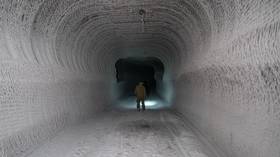
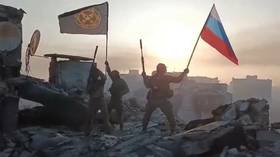
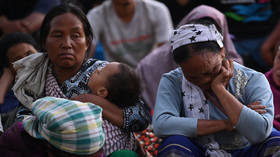
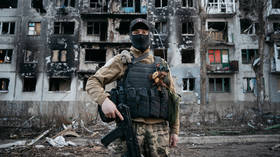
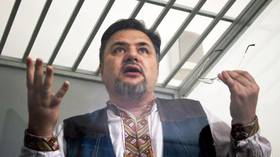
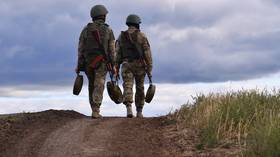
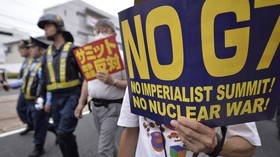
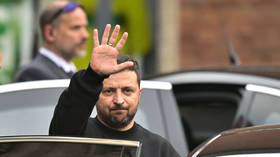
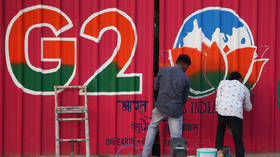
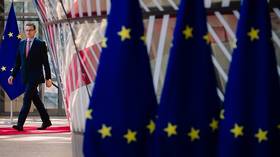


Comments are closed.